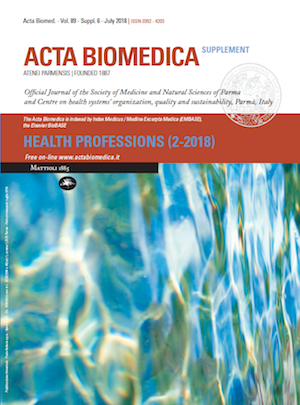The narrative interview in therapeutic education. The diabetic patients' point of view
Keywords:
Interview; chronicity; diabetes; therapeutic education; Case-Care Manager.Abstract
Introduction: Due to the rise of the average age, chronic-degenerative diseases, including diabetes, are in constant increase, resulting in high complications, in terms of social-economical costs and of the quality of life of the people affected by it. For these reasons, adherence to therapeutic prescriptions becomes essential. Through the implementation of motivation, clear information and follow-up, health professionals can help patients with diabetes to increase therapeutic adherence and maintain healthy lifestyles. Aims: The aims of this study were to explore the diabetic patient’s adherence and their illness perceptions and the role of the Case-Care Manager in improving the empowerment of patients. Method: For this purpose, a semi-structured interview was used, and submitted by 30 patients (19 males; age range: 20-65; mean age: 49.9) belonging to two diabetological centres of Emilia-Romagna (Italy). Results: In the both contexts, knowledge of diabetes is limited and 2/3 of patients found out about diabetes almost by chance. As for the correct lifestyle (diet and physical activity), patients have initially started to change but the behaviour was not maintained and not perceived as an important part of the disease management. It emerged that a health specialist could help them keep a healthy lifestyle. Conclusions and discussion: The CCM, in particular, can effectively intervene on the poor knowledge of the disease, on difficulty in getting used to the new lifestyle and on the lack of motivation. In fact, The CCM deals specifically with information and education of the patient, promoting self-care and monitoring the patients’ paths and outcomes.
Downloads
Published
Issue
Section
License
This is an Open Access article distributed under the terms of the Creative Commons Attribution License (https://creativecommons.org/licenses/by-nc/4.0) which permits unrestricted use, distribution, and reproduction in any medium, provided the original work is properly cited.
Transfer of Copyright and Permission to Reproduce Parts of Published Papers.
Authors retain the copyright for their published work. No formal permission will be required to reproduce parts (tables or illustrations) of published papers, provided the source is quoted appropriately and reproduction has no commercial intent. Reproductions with commercial intent will require written permission and payment of royalties.







